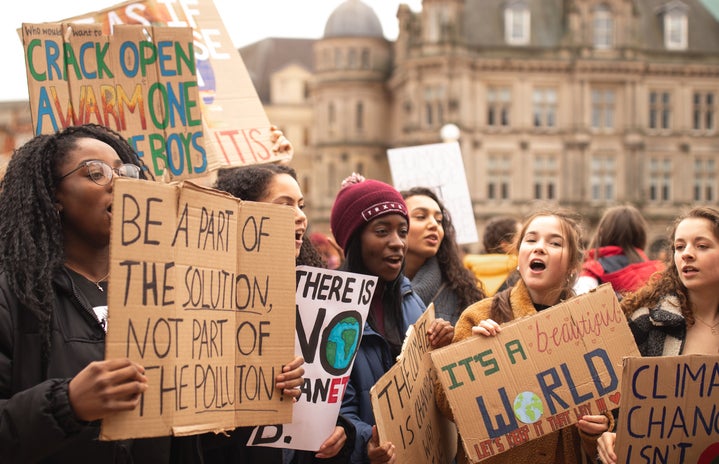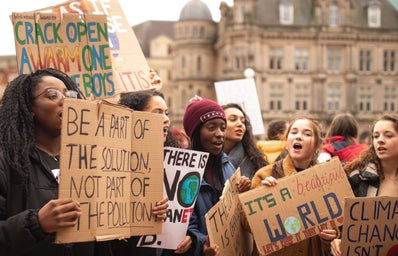Edited by: Lavanya Goswami
Generation Z, or Gen Z for short, refers to the demographic cohort born between 1996 and 2015. Often perceived as adorned with privileges, mainly on account of growing up fully integrated with technology, Gen Z extends beyond an entitled generation coddled by its predecessors. Yes, they have better access to resources that previous generations laboured all their lives to get, but that can only be imputed to the permanence of evolution. What about the heights of bliss such as companionship, contentment, serenity, and a peaceful environment that were almost characteristic of the preceding generations, but are poignantly absent from Gen Z’s lives? I’d like to illuminate Gen Z’s deprivations along these axes.
Let’s begin by talking about their most obvious “privilege”, namely the internet. Despite the seamless connectivity that it has brought them, it is culpable of not only deepening the divide between virtual and real but also cementing Gen Z’s preference for the former. They are as dissociated from the tangible as humanly possible. Barring the harrowing pretense of superficial friendships survived by the obligatory small talks on social media, they are deprived of companionship. A study conducted by USA Today shows that one out of five Gen Z Americans has no person they can talk to. It’s the loneliest generation ever.
Pitted against one another right from birth, the same thread of dissociation consequently leads them to view their peers as competitors, which further impedes their ability to build meaningful relationships. These exasperating juxtapositions have woven the necessity of playing catch-up into the very fabric of their being, robbing them of contentment in their achievements. Born into a rat race, incessant perfectionistic strivings are inevitable. They’ve grown indifferent to the friendships they’re stifling in their unceasing efforts to overstuff their resumes for the coveted Ivy League-bound 401(k) paid picket fences.
This endless chase, accentuated by empty promises of insatiable contentment, is now taking a toll on their health, both physical and mental. Gen Z’s deprivations, many that accompany, but are overshadowed by the emergence of technology, nag away at their ubiquitous hollows of mental peace. According to an article published in Psychology Today, more than 80% of Gen Z cannot sleep because of peer pressure, academic duress, and overcommitment, otherwise known as spreading oneself thinner than graphene. One in every three of them is afflicted by sleep deprivation.
As a reflection of these absences of affection, this generation of lone misfits yearning for validation is also deprived of acceptance. Reduced to a mass of people-pleasers, numbed by their destitution of approval and fear of ostracization, albeit from social media groups, Gen Z will go to unimaginable extremes to melt into the crowd. Owing to the lack of fruition of filling this void with the maximum number of hearts on Instagram, they turn inwards, enduring unprecedented emotional turmoil on a regular basis. A report by the American Psychological Association confirms that 91% of Gen Z have experienced at least one physical or emotional symptom due to stress in the past month alone, these unparalleled stress levels taking unrivaled tolls on their health.
Their stresses are further compounded by being deprived of political stability. Granted they didn’t have to live through the World Wars, but they’re inhabiting a world where a Twitter feud between two heads of state is capable of starting a nuclear war. With the constant proliferation of information on a fully mobile internet, they’re accustomed to waking up to a taskbar full of terrible news. A study by the American Psychological Association shows that 69% of Gen Z is scared for their nation’s future. The evident volatility of peace further deepens this empathetic, emotionally intelligent generation’s phobia of uncertainty.
The dread of unpredictability evoked by climate change also factors intricately in the anxiety they endure. Environmentally speaking, if every generation sat at a buffet for an ancient Roman feast, Gen Z would be the one cleaning up the mess from other generations’ gluttony. Perhaps it has become a tradition for the previous generations to pay the price for their predecessor’s overconsumption. However, what makes Gen Z’s task Herculean is that they’re doing so staring down the barrel of a gun. With a global warming apocalypse on the horizon as close as 2050, and their futures practically disappearing, Gen Z fears climate change more than anything else. Contrary to popular notions, Gen Z is not smitten by the Peter Pan Syndrome (often described as one’s inability to engage in behavior usually associated with adulthood), as so crudely criticized by boomers. Their hankering for a utopia is more attuned to reality than the often-cynical generational stereotypes that they’re ascribed.
“But hey, rebellious teenager, your parents have lived through worse and your parents’ parents through much worse, and they did it without the option of uploading selfies to gain sympathy.” Why are we any different then, you ask? While some of the grotesque issues mentioned above have persisted through the ages, Gen Z got the short end of the stick because they’re vulnerable to exploitation from strangers on the internet even in the confines of their homes. According to Nancy Breiling Nessel, a Gen Z specialist, social media is the same space where 43% of these “digital natives” are subjected to cyberbullying, in the form of trolling, deprecating scrutiny, petrifying threats, and all the other horrors of social media. They will never know what it is like to experience tranquility or unconditional friendship. They’re no longer working towards restoration; they’re simply trying to postpone their impending doom.
Gen Z is connected yet lonely, shrewd but anxious, politically engaged and therefore, stressed; and above all, mocked for their optimism. In a world infested with the vice of comparison, parents often use Gen Z’s alleged privileges as ammunition to push them to perform better, and the most inconsequential of failures is construed as an utter disregard for the proverbial silver spoon. It’s imperative for Gen Z to be just as mindful of their seemingly more prevalent deprivations in order to hold more positive views of themselves. Their jonesing for a sense of fulfillment might compel them to resort to unlikely sources like mobile applications, but that’s because their tormenting deprivations chase them there. The next time you make an uninformed claim about the alleged privilege of “snowflakes”, an extremely deprived and not-so-flaky generation, ask yourself, are you reinforcing an entire generation’s worth of stereotypes?


